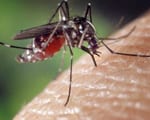The independent news wire service UPI covered the research of SMU psychologist George W. Holden about the controversial practice of corporal punishment. The article published Jan. 29, “Parents can change mind on spanking if told it harms a child.”
Holden, an expert in families and child development, is a founding member of the U.S. Alliance to End the Hitting of Children, at endhittingusa.org.
He was recently elected president of Dallas’ oldest child abuse prevention agency, Family Compass.
Most recently his research showed that parents who favor spanking changed their minds after they were briefly exposed to summaries of research detailing the negative impact of corporal punishment on children. Holden, who considers spanking a public health problem, said the research indicates that parents’ attitudes about spanking could economically, quickly and effectively be changed to consider alternative disciplinary methods.
Holden’s earlier research provided a unique real-time look at spanking in a way that’s never before been studied. In a study of 37 families, mothers voluntarily recorded their evening interactions with their young children over the course of six days, including incidents of corporal punishment.
EXCERPT:
UPI
U.S. adults exposed to research on spanking showing subsequent child behavioral problems may change their discipline methods, researchers say.Child psychologist George Holden of Southern Methodist University in Dallas, who favors alternatives to corporal punishment, wanted to see if parents’ positive views toward spanking could be reversed if they were made aware of the existing research.
Holden and three SMU colleagues used a simple, fast, inexpensive method to briefly expose 118 college students to short research summaries that detailed spanking’s negative impact.
The summary consisted of several sentences describing the link between spanking and short- and long-term child behavior problems, including aggressive and delinquent acts, poor quality of parent-child relationships and an increased risk of child physical abuse.
Nearly 75 percent of the study subjects said after seeing the research they thought less favorably of spanking.
Follow SMUResearch.com on Twitter.
For more information, www.smuresearch.com.
SMU is a nationally ranked private university in Dallas founded 100 years ago. Today, SMU enrolls nearly 11,000 students who benefit from the academic opportunities and international reach of seven degree-granting schools. For more information see www.smu.edu.
SMU has an uplink facility located on campus for live TV, radio, or online interviews. To speak with an SMU expert or book an SMU guest in the studio, call SMU News & Communications at 214-768-7650.


 Wall Street’s short sellers wrongly maligned — detected red flags ahead of US financial crisis
Wall Street’s short sellers wrongly maligned — detected red flags ahead of US financial crisis A director’s skills, experiences and workload drive their compensation, SMU study finds
A director’s skills, experiences and workload drive their compensation, SMU study finds Gut reaction of marital partners could foretell their marriage satisfaction
Gut reaction of marital partners could foretell their marriage satisfaction
 Fossil supervolcano discovered in Italy by SMU-led team is now key feature of new UNESCO Geopark
Fossil supervolcano discovered in Italy by SMU-led team is now key feature of new UNESCO Geopark

 The Undying Radio: Familiarity breeds content when it comes to listeners and music
The Undying Radio: Familiarity breeds content when it comes to listeners and music Mosquito indexing system identifies best time to act against potential West Nile Virus outbreaks
Mosquito indexing system identifies best time to act against potential West Nile Virus outbreaks
 Study finds Jurassic ecosystems were similar to modern: Animals flourish among lush plants
Study finds Jurassic ecosystems were similar to modern: Animals flourish among lush plants SMU contributes fossils, expertise to new Perot Museum in ongoing scientific collaboration
SMU contributes fossils, expertise to new Perot Museum in ongoing scientific collaboration 100 million-year-old coelacanth discovered in Texas is new fish species from Cretaceous
100 million-year-old coelacanth discovered in Texas is new fish species from Cretaceous Academic achievement improved among students active in structured after-school programs
Academic achievement improved among students active in structured after-school programs New study on kingship and sainthood in Islam offers a striking new historical perspective
New study on kingship and sainthood in Islam offers a striking new historical perspective